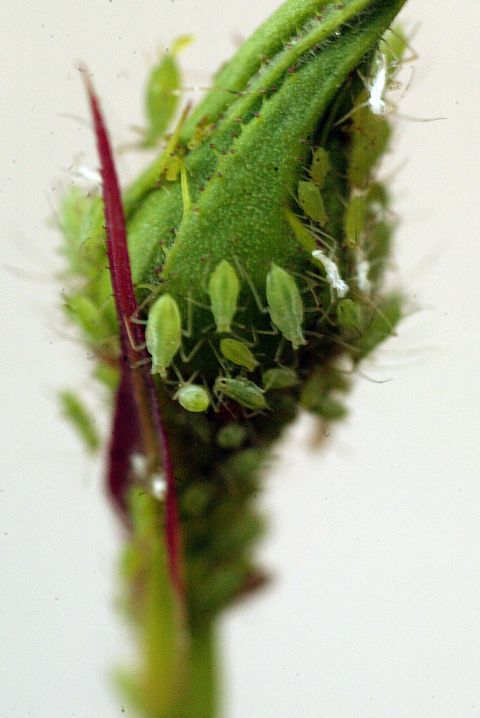How To Get Rid Of Snails In Aquarium
Advice on how to get rid of greenfly from rose specialists at David Austin Roses, including pest control, looking out for a greenfly outbreak and how to attract the right kind of insects.
We've made sure that our roses and lupins have been planted, fed, nourished and pruned with care and affection. And now we await and enjoy the pleasures of their beautiful flowers in the hopes that they don't become victim to an invasion of green aphids, more commonly known as greenfly.
But, helpless we are not, as the rose specialists at David Austin Roses highlight. We asked their Technical Manager, Michael Marriott, to share his top tips on how to get rid of greenfly in our gardens.
What are greenfly?
Greenfly, part of a wider group of insects called aphids, are one of the most common 'pests' in our gardens. They are attracted to all types of plants and flowers because they like to eat the sap they exude. They are commonly associated with their love of roses but they can be found on any plant.
Greenfly are not always green. With a number of different species, they can appear green, brown or pink. They are very small, just one to three millimetres long with six legs and sometimes with wings, although not all of them can fly.
Does spraying plants with chemicals get rid of greenfly?
Michael advises that we should not spray our plants with insect repellant, pesticides or chemical pest control because this can upset the natural balance of insects in the garden and end up killing beneficial insects as well as the greenflies.
If possible, we should let nature regulate itself. We can do this by making sure we are attracting all kinds of insects and species into our green spaces. That way, we will create a balanced eco-system which will regulate itself via the food chain.
Read more on how to attract wildlife into your garden:

Kirk McKoy Getty Images
How can we attract beneficial insects instead of greenfly?
Making sure your garden is a rich and welcoming environment for all types of insect means that the habitat can be controlled naturally. Beneficial insects, such as ladybirds, microscopic wasps, hover flies and lacewings, feed on the aphids and are a great way to naturally control plant pests.
There are many plants that attract beneficial insects into the garden – you can see a full list on the RHS website. Some of Michael's favourites include:
- Eryngiums
- members of the borage family like Anchusa and Phacelia
- Umbellifers – celery, carrot or parsley flowers
- Scabious
- Golden Rod
- Nepeta
He also recommends planting a range of plants that will provide flowers for insects all year round.
Attracting all types of insects includes their larvae too – especially in the case of ladybirds as they are particularly effective at greenfly control. Although ladybird larvae may look unpleasant, it is not to be confused with something that will harm your plant. It is, in fact, a good sign so if you see it, leave it.
How many greenflies are cause for concern?
It is good to have a few green aphids on your plants as they provide the food for the beneficial insects. Without them, other insects will find a new home elsewhere and there will be nothing to naturally deter an aphid attack.
So, if you see a few greenfly on your plants, let them be. It's when you see multiple aphids covering the whole plant that you need to take action to protect it.
What should you do in the case of a greenfly outbreak?
Michael recommends gently but firmly knocking or shaking the plant to release the greenfly. Once on the ground, they are unlikely to make it back onto the flower as many can't fly.
This content is created and maintained by a third party, and imported onto this page to help users provide their email addresses. You may be able to find more information about this and similar content at piano.io
How To Get Rid Of Snails In Aquarium
Source: https://www.countryliving.com/uk/homes-interiors/gardens/advice/a634/how-to-deter-green-fly/
Posted by: porterfieldthenthe.blogspot.com

0 Response to "How To Get Rid Of Snails In Aquarium"
Post a Comment